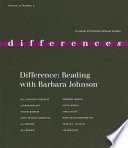 | D. Quentin Miller - 2005 - 289 páginas
...to shape the audience's attitude toward of capital punishment. Heteroglossia suggests that language "becomes 'one's own' only when the speaker populates it with his own intention, his own accent, when he appropriates the word, adapting it to his own semantic and expressive intention" (Bakhtin 293).... | |
 | Maria Bakardjieva - 2005 - 236 páginas
...mouths, out of other utterances that are kindred to theirs in genre. Yet words and genres become our own 'only when the speaker populates it with his own intention, his own accent, when he appropriates the word, adapting it to his own semantic and expressive intention' (1981, p.... | |
 | Dorothy J. Hale - 2005 - 841 páginas
...opinion, language, for the individual consciousness, lies on the borderline between oneself and the other. The word in language is half someone else's. It becomes...populates it with his own intention, his own accent, when he appropriates the word, adapting it to his own semantic and expressive intention. Prior to this... | |
 | John Potter - 2006 - 244 páginas
...His occasional forays into what was seen as Uncle Tomming were surely of a Bakhtinian nature, where 'the word in language is half someone else's. It becomes...populates it with his own intention, his own accent, when he appropriates the word, adapting it to his own semantic and expressive intention.'5 Armstrong's... | |
 | Theo Harden - 2006 - 244 páginas
...jeweils anderen in gleichem Maße gehört wie uns selbst: The word in language is half someone eise's. It becomes ,one's own' only when the Speaker populates it with his own intention, his own accent, when he appropriates the word, adapting it to his own semantic and expressive intention. [...] it exists... | |
 | Lynn Festa - 2006 - 326 páginas
...someone else's," as Bakhtin tells us, is a matter of celebration for Sterne. For Bakhtin, the word "becomes 'one's own' only when the speaker populates it with his own intention, his own accent. . . . Prior to this moment of appropriation, the word does not exist in a neutral and impersonal language... | |
 | Heidi Byrnes - 2006 - 296 páginas
...someone else's' (1981: 293), the result being the inherent multivoicedness of utterances. [The word] becomes 'one's own' only when the speaker populates it with his own intention, his own accent, when he appropriates the word, adapting it to his own semantic and expressive intention. Prior to this... | |
 | Elizabeth Weed, Naomi Schor, Ellen Rooney - 2006 - 220 páginas
...English also brings to mind Mikhail Bakhtin's description of the appropriation of the word in language: The word in language is half someone else's. It becomes...populates it with his own intention, his own accent, when he appropriates the word, adapting it to his own semantic and expressive intention. Prior to this... | |
 | Gabriel Solis - 2007 - 255 páginas
...Mikhail Bakhtin, writing on the fundamentally relational quality of linguistic expression, writes, "The word in language is half someone else's. It becomes...populates it with his own intention, his own accent, when he appropriates the word, adapting it to his own semantic and expressive intention" (Bakhtin 1981,... | |
| |